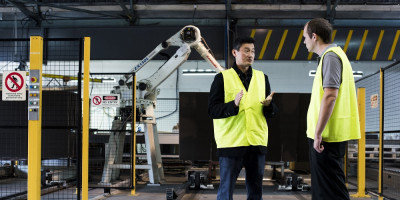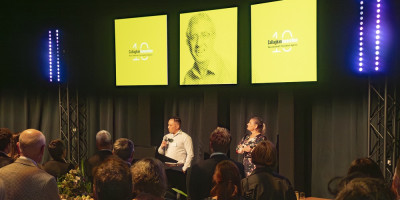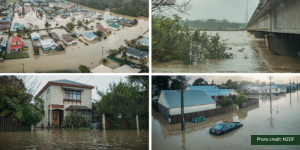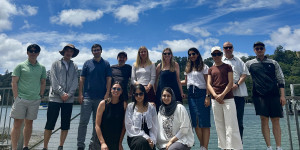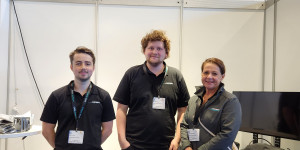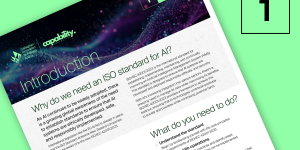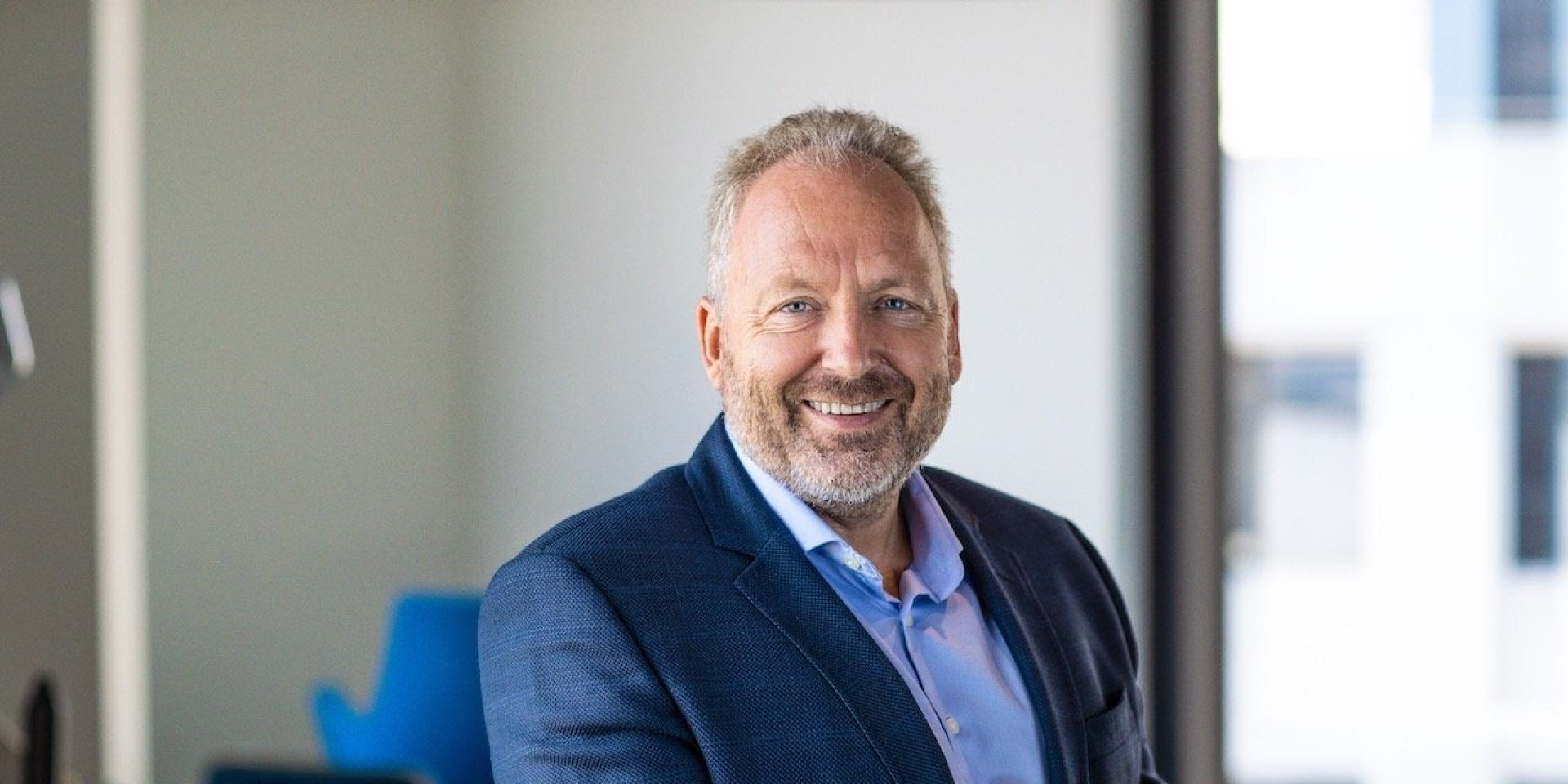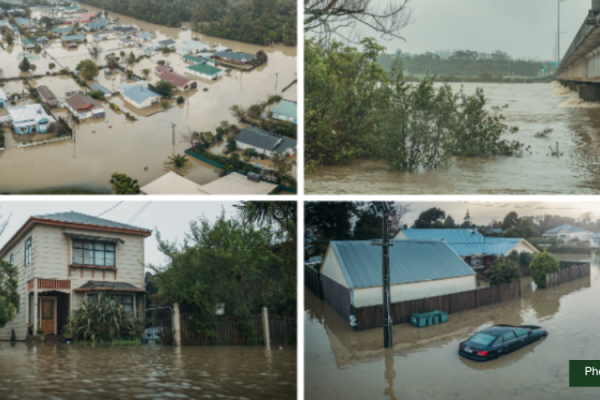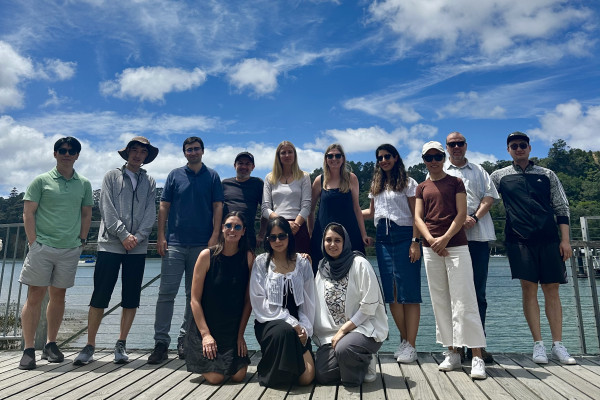Humble Brag 002: In this second instalment of the Humble Brag series, Callaghan Innovation CEO Stefan Korn continues his dialogue with trailblazing Aotearoa New Zealand innovators who have already had massive global impact but are continuing to innovate in new areas.
For this article, I had the pleasure of spending an hour with Rod Drury, founder of Aftermail and Xero for a chat about what he’s up to now and where he sees opportunities for New Zealand to lead on a range of important technologies that will improve the state of our planet.
After Xero, I have finally had time to think about what’s important—projects that make New Zealand better,
Rod shared as we kicked off our conversation.
After years of intense work building Xero into a global company, Rod is allowing himself some time to recalibrate and reconnect with his passions: “I’m in Fiji at the moment. My kids are at an age where they’re starting to leave the nest, and I’m finally getting some time back,”. In between making big plans, he’s taken up wing foiling, enjoying the freedom and exhilaration that comes with this unique sport.
But Rod’s recalibration is not about winding down and stepping away from work - it’s about focusing his efforts on projects that truly matter — like finding ways to improve New Zealand, particularly through technology and sustainability. “Once you’ve done a business like Xero, you have time to re-assess things—what’s important—and I’ve always been hot on this idea of what are the four or five big projects we can do to make New Zealand better,” Rod explained.
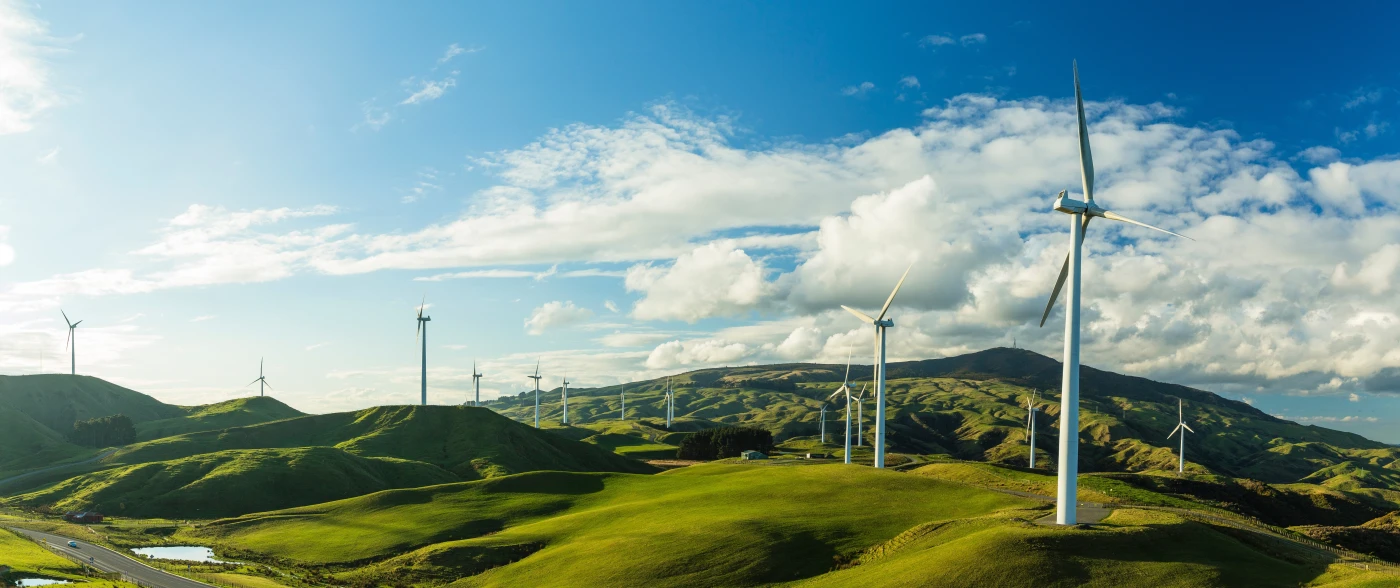
So, the key question is – what does New Zealand stand for? We are quite unclear about that at the moment. What’s our vision for Aotearoa? I think our natural competitive advantage is water and hills. Like, why aren't we at 100% renewable? And why are our energy prices so high?
Rod is leveraging his experience to mull over how New Zealand can become a leader in renewable energy and innovative infrastructure. “Our version of Saudi Arabia’s oil could be having the lowest cost renewable energy in the world,” Rod said, emphasising the potential for New Zealand to take a more decisive leadership role in an area where the country has an unfair advantage. “If you understand the electricity market in New Zealand, it's very clear. We only store about two months' worth of water, and the retailers make the money on dry years. So everyone's acting quite rationally, but the market's broken.” Rod describes a viable pathway for a bright future where the lowest cost, sustainable energy could be converted into (AI) compute which is highly sought after – thereby opening up pathways for “exporting” excess energy in a roundabout way.
"So I think the answer is structural separation of the electricity market, the infrastructure components, the lines, generation, etc that should be funded by big super funds. There's lots of money around the world looking to earn that 5% of good stable returns." Rod explains that when he last looked there were around $2Tn of Australian super funds looking for investments in things like local infrastructure projects in stable countries. "So the opportunity is real, there is money looking to solve these infrastructure problems, if we can do the financial engineering to split up the market".
Rod also identifies issues with our domestic payment networks.
I grew up at a time when we were so proud of our EFTPOS system. And yet with contactless payments now, we've moved a whole lot of transactions to international payment rails. Payment fees are effectively a tax on all small businesses – that's 2.5 - 3% that are going offshore.
Rod sees a real opportunity with payment technology being rolled out on some of the large platforms like Apple Pay. “With iOS 18 just coming out, it looks like they are going to open up the secure enclave to other payment systems. We get a chance to rebuild our domestic payments networks and keep our payments onshore.” He envisions super-fast payments with far less than a 1% transaction fee; explaining that current transaction fees are appropriate for credit card transactions where there's a degree of financial risk. But more modern payment technologies that can settle and clear immediately don’t need the level of fees being charged at the moment.
“Nobody seemed to be looking at that. Being able to just take a wider lens, identifying these infrastructure opportunities and then working with the appropriate ministers and industry bodies to see what we can do is exciting.” Rod mentions upcoming meetings with Retail NZ, the Commerce Commission, and others to design what our next-generation domestic payments networks could look like.
Shifting the conversation to Rod’s entrepreneurial experience, I asked him about his journey as a serial entrepreneur and what he would tell founders in their mid-20s today.
Well, you know, to be successful and have an impact, you actually have to have success. I see a lot of people get carried away with philanthropy and doing those things early before they've been successful.
Rod asserts that it's a founder's duty to ensure their initial venture succeeds, as this generates a wealth of experience, fosters collaboration and learning among the employees, and hopefully helps make the world better. “And then as each business gets bigger and bigger, you've got the resources, the experience and the people to create impact. Then it's your obligation to do much more for your country and to help everybody else out.” As a technologist, Rod has always kept an eye out for mega trends and for Xero, that was the cloud and moving business applications there. “Now the obvious stuff we're seeing is AI and robotics – there’s a very fertile ground for innovation and massive valuations.” As it happens, our chat coincided with OpenAI closing the biggest funding round in history.
Asked about the impact of New Zealand’s unique culture when it comes to business and entrepreneurship, Rod shares some of his experiences from scaling Xero to a global, listed company. “When you're having a meeting with folks in Japan, they'll ‘say, yes, yes, yes’. However, the ‘yes’ means yes and no … it means we hear you, and we'll think about it later. Overseas experiences force you to examine our New Zealand culture and values”. Rod found that the most important value in New Zealand is care for the environment, followed by equality. “Equality is not a value that is that common everywhere. We really care about everyone having the same opportunity. That's very different in Australia, and it's the opposite in the US.” Being aware of that is crucially important when doing business in other countries, Rod explains. “You need to accept that equality and fairness is something that other countries don't really worry about too much. They just want to go and be successful.” We used to frequently refer to the tyranny of distance in New Zealand, but it’s also the challenges of cultural differences – we can’t get wealthy selling to ourselves.
We're a really small country, and it's hard being an entrepreneur. In Boston, you can reach 4 million customers within an hour's drive, and ten minutes more will get you to 5 million. For us, reaching 5 million customers means exporting, being away from family, and learning to understand other cultures.
Rod reflects on the impact of globalisation and how technology has reshaped the entrepreneurial landscape, particularly for small countries like New Zealand. "There's so much opportunity because you can do it from anywhere," he notes. However, he also acknowledges the challenges posed by operating in a global market with some Kiwi lifestyle preferences: "We're now operating in a globally competitive world, and other countries have more urgency." Asked about the importance of team culture in relation to physical location, Rod explains, "As a founder and business owner, it's so important to build culture by having all your people with you," he explains. Finding the right balance between remote work and in-office collaboration will be key for future success … whoever cracks that is onto a fantastic opportunity."
Rod discusses the importance of global networks, referencing the crucial role that Peter Thiel’s investment played in Xero’s success. Though Thiel's politics don’t align with his, Rod appreciates the access and acceleration that Thiel’s investment provided at the time. "The biggest thing that Peter gave us at Xero was access right into that Silicon Valley network," he says, "It really accelerated us." This underscores a broader theme: understanding the nature of philosophical or political differences to achieve global success is crucial. Or as I usually put it “acceptance doesn’t mean approval” borrowing from Alan Watts’ wisdom.
Now in his late 50s and reflecting on his entrepreneurial journey Rod makes an interesting observation about professional development across a range of age brackets.
I grew up at Ernst & Young which gave me the professionalism experience, you know, how to work, the tiered partnership model gave you that respect. That was good for my 20s. In your 30s you start building real technical knowledge. You're starting to specialise in what you're doing, you're building your networks, and you're starting to gain a little bit of economic security. In your 40s you're getting into senior management, owning your own businesses, you've got good experience, you should be making good money, and then in your 50s you're kind of more into how you're running your own business. That's when you can really have fun and generate real wealth through entrepreneurship and by taking risks.
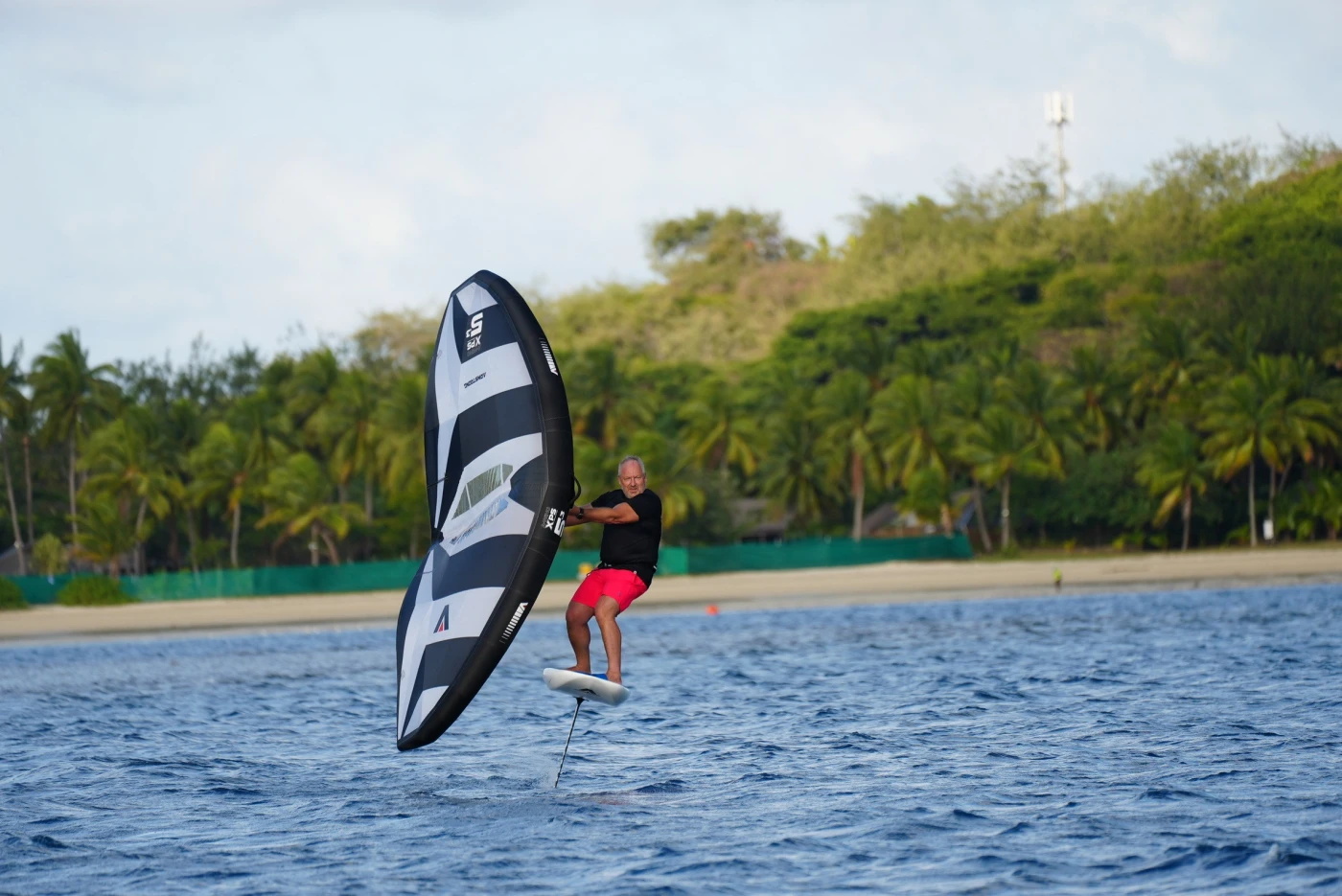
And in your 60s? "I think you want to preserve that active lifestyle, and you get much more pleasure watching other people be successful. I started Xero when I was 40, so there's no rush. I've done a few businesses before, and I'm having more fun now than I had all the way through it. I'm healthier now, and I'm doing a lot more sports.”
To conclude, I ask Rod for his advice to founders in 2024 – what would Rod do today if Xero or Aftermail hadn’t happened?
I think one of the most important things is having a clear vision. Like with Xero, I knew that it was going to be successful from day one. I could just see how it worked in my head. So, when I saw things that were inconsistent with our success, I'd go and fix it. I was always hiring people or refining the team, so we had the right people in at the right time. But as the founder, you have to have a clear vision of how it's all going to work out.
Having had this clear and bold vision for Xero, Rod continues to outline his ambition and passion for New Zealand “I'm kind of hoping that with the relationships we're building with our government and parties across all sides of the political spectrum, that we can really create a vision concept for a whole country. like, what does New Zealand stand for? There's a whole lot of urgent things that tell us New Zealand isn't what it used to be. We're operating in a complex world, and I think we need a lot more active leadership and a real vision of whereabouts we're going … and, you know, I'm trying to do my best to influence that. “
I love the idea of reframing 'going to carbon zero' - which sounds like a diet - to having the lowest cost of renewable energy in the world. Everyone goes, hell yeah, we want that,
Rod concludes, bringing our chat to an end on a hopeful note. His vision for New Zealand encompasses innovation, sustainability, and global competitiveness. It’s about harnessing our country’s natural resources and talent to create a better future.
Xero received funding support from Callaghan Innovation through the Experience, Career and Growth Grants.






